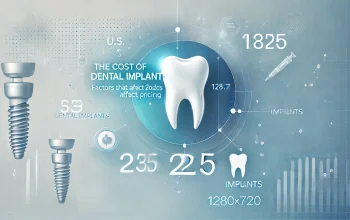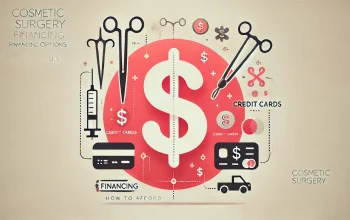The True Cost of Cosmetic Surgery in 2025: What to Expect

Cost of Cosmetic surgery is an ever-evolving field that continues to grow in popularity across the United States and the world. As people seek to enhance their physical appearance, reduce signs of aging, or correct perceived imperfections, the demand for various cosmetic procedures remains high. But what will the cost of cosmetic surgery look like in 2025, and what factors should potential patients consider before deciding on a procedure?
In this article, we will explore the projected costs of cosmetic surgery in 2025, the key factors influencing these prices, how advancements in technology may impact procedures, and what prospective patients should know before committing to a cosmetic surgery. Whether you’re considering a procedure now or planning for the future, understanding the true cost of cosmetic surgery is essential for making informed decisions.
Table of Contents
1. Current State of Cosmetic Surgery Costs (2023)
Before diving into 2025 projections, it’s crucial to understand where we are today. As of 2023, cosmetic surgery costs vary significantly based on the type of procedure, location, surgeon expertise, and other factors. Below are some of the average costs for common cosmetic procedures in the United States:
- Rhinoplasty (Nose Job): $5,000 – $15,000
- Breast Augmentation: $6,000 – $12,000
- Liposuction: $3,000 – $10,000
- Facelift: $8,000 – $15,000
- Tummy Tuck: $6,000 – $13,000
- Eyelid Surgery: $4,000 – $7,500
- Botox Injections: $300 – $1,500 per session
- Laser Skin Resurfacing: $1,000 – $3,500
These costs represent the surgeon’s fee and typically do not include additional expenses such as anesthesia, facility fees, and postoperative care, which can add thousands to the final bill.
2. Key Factors Influencing the Cost of Cosmetic Surgery
The cost of cosmetic surgery can fluctuate due to several key factors, and many of these are expected to continue influencing prices in 2025:
a. Surgeon’s Experience and Reputation
Top-tier surgeons with extensive experience and strong reputations command higher fees. Patients are often willing to pay a premium for a surgeon known for delivering excellent results. Surgeons who specialize in complex procedures or serve high-demand regions tend to charge more.
b. Geographical Location
Where you have your surgery performed plays a significant role in cost. For example, cosmetic surgery in metropolitan areas like New York City, Los Angeles, or Miami can be much more expensive than in smaller cities or rural areas. In 2025, these price disparities may widen due to regional economic differences, local demand, and cost of living variations.
c. Type of Procedure
Different procedures require varying levels of expertise, equipment, and time. More complex surgeries like facelifts and body contouring typically cost more than minimally invasive procedures like injectables or laser treatments. The rising popularity of newer, cutting-edge technologies, like robotic-assisted surgery and stem cell treatments, may also impact pricing in the coming years.
d. Facility and Anesthesia Fees
Surgeries performed in accredited hospitals or state-of-the-art surgical centers often come with higher facility fees. Additionally, the cost of anesthesia can vary depending on whether local or general anesthesia is required.
e. Technological Advancements
Advances in technology, such as the use of 3D imaging for surgical planning or laser and ultrasound-based fat reduction, can increase costs. However, these technologies may offer better outcomes with reduced recovery times, potentially offsetting the higher upfront cost.
3. How Cosmetic Surgery Costs Might Change in 2025
a. Inflation and Economic Trends
By 2025, economic factors such as inflation, supply chain disruptions, and global market conditions could push cosmetic surgery prices higher. Medical supplies, surgical tools, and the cost of maintaining cutting-edge equipment are all susceptible to price increases over time. As inflation continues, the overall cost of cosmetic procedures will likely follow suit.
b. Increased Demand and Accessibility
As more people opt for cosmetic surgery, competition among providers may drive prices down in some areas. However, the demand for cosmetic procedures has been steadily rising, particularly for minimally invasive treatments like Botox and dermal fillers. In 2025, the global market for cosmetic surgery is expected to grow, which could influence both demand and pricing structures.
c. Insurance and Financing Options
In the US, most cosmetic surgeries are considered elective and are not covered by insurance. However, there is a growing trend in offering financing options, payment plans, and medical credit cards. By 2025, patients may have even more flexible financing choices, making higher-cost procedures more accessible to a broader range of people.
4. Technological Innovations and Their Impact on Costs
a. Minimally Invasive Procedures
The rise of non-surgical cosmetic treatments, such as injectables, laser therapy, and chemical peels, will continue to influence the cosmetic surgery landscape in 2025. These procedures are generally less expensive than full surgical options and require less recovery time, making them attractive to a larger audience.
For instance, Botox and dermal fillers are expected to remain popular, as they offer fast results with minimal downtime. Additionally, new types of injectables that provide longer-lasting results may emerge, potentially altering the pricing structure.
b. 3D Printing and Custom Implants
Technologies such as 3D printing could revolutionize how implants are designed and manufactured. Custom 3D-printed implants for breast augmentation or facial reconstruction could offer better fit and outcomes for patients. However, these personalized solutions may come at a higher cost compared to traditional implants.
c. Robotics and AI in Surgery
Robotics and artificial intelligence (AI) are becoming increasingly integrated into surgical practices. In 2025, robotic-assisted procedures for facelifts, liposuction, and other body contouring surgeries could offer higher precision and better results. However, the use of such advanced technology may lead to higher procedural costs due to the complexity and expense of the equipment.
d. Stem Cell and Regenerative Medicine
Stem cell therapy is poised to become a game-changer in cosmetic surgery. By 2025, the use of stem cells for tissue regeneration, facial rejuvenation, and even breast reconstruction may become more widespread. These treatments offer natural-looking results with fewer complications, but the costs for stem cell-based procedures could be significantly higher than traditional methods.
5. Hidden Costs and Additional Expenses
Beyond the surgeon’s fees, patients need to be aware of other costs that can significantly increase the total expense of cosmetic surgery:
a. Preoperative Consultations
Many surgeons charge for initial consultations, especially those with highly sought-after expertise. Some consultations can range from $100 to $500, depending on the surgeon’s experience and location.
b. Anesthesia and Facility Fees
The cost of anesthesia and the fees for using a hospital or surgical center can add thousands of dollars to the total cost. In some cases, anesthesia fees alone can range from $1,000 to $3,000, depending on the complexity and duration of the procedure.
c. Postoperative Care and Medications
After surgery, patients often need follow-up appointments, prescription medications, and specialized garments for recovery. These costs are often overlooked but can add several hundred dollars to the overall expense.
d. Revision Surgeries
In some cases, patients may require revision surgeries to correct or improve the initial results. While some surgeons offer discounted rates for revisions, this is not always the case, and patients should factor this possibility into their financial planning.
6. Planning for Cosmetic Surgery: Financial Considerations
If you’re considering cosmetic surgery in 2025, it’s essential to plan ahead financially. Here are a few tips to help manage the costs:
a. Budget for the Full Cost
Be sure to budget for the entire cost of the surgery, including surgeon’s fees, anesthesia, facility fees, and postoperative care. Don’t forget to account for potential hidden costs like consultations, medications, and follow-up appointments.
b. Explore Financing Options
Many cosmetic surgery practices offer payment plans or work with financing companies that specialize in medical loans. Look for options with low-interest rates or no-interest promotional periods to spread out the cost over time.
c. Save in Advance
If financing isn’t an option, start saving for your desired procedure well in advance. Setting aside a portion of your income each month can help you avoid going into debt to cover the cost of surgery.
d. Consider Insurance for Certain Procedures
While most cosmetic surgeries are not covered by insurance, some reconstructive procedures may qualify for partial or full coverage. For example, breast reconstruction after a mastectomy or surgeries to correct congenital defects may be covered under certain insurance plans.
7. Is Cosmetic Surgery Worth the Cost in 2025?
For many, cosmetic surgery is a significant investment. While the cost can be high, the benefits—improved self-confidence, enhanced appearance, and a greater sense of well-being—can make it worth the price. However, it’s crucial to have realistic expectations about the results and to choose a qualified surgeon who can deliver safe, high-quality care.
Patients should weigh the pros and cons, conduct thorough research, and consider not only the financial investment but also the potential risks and recovery time involved. As cosmetic surgery continues to advance, the cost may increase, but so too will the quality and variety of available procedures.
Conclusion
The cost of cosmetic surgery in 2025 will be shaped by a variety of factors, including technological advancements, economic trends, and increasing demand for both surgical and non-surgical


